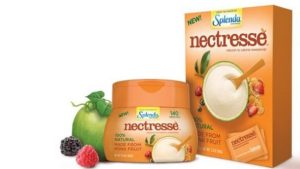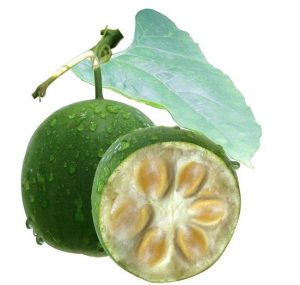News
Move Over Stevia, There’s Sweeter News In Town. Meet The Monkfruit
Every group of friends has a sweet-toothed person, or maybe three! Let’s face it, for a lot of us sweets are our fuel. Statistically, this is evident by our increased sugar consumption which has led to high demand for low-calorie, natural sweeteners. To meet this demand, stevia has been that sugar substitute that has heroically been added to our desserts, drinks and pretty much everything else. However, there’s a new sweetener in town. Meet the monkfruit.
What Is Monkfruit?
Monkfruit, or Luo Han Guo, is a small sub-tropical melon that has been cultivated in the remote mountains of Southern China for centuries. According to legend, monk fruit is named after the Buddhist monks who first cultivated the fruit nearly 800 years ago.
Monk fruit juice, twenty times sweeter than other fruit juices, is on the rise, and is set to replace sugar and stevia with delicious low-calorie sweetness, and the great-tasting goodness from fruit. The unique low-calorie sweetness of monk fruit comes from naturally occurring antioxidants found in the fruit. And the best part, it doesn’t have the bitter after taste that stevia does. No wonder it’s being used as the main sweetener in a plethora of products.

The Benefits Of Monkfruit
Monkfruit Provides Zero Calories
The source of the sweetness of stevia and monkfruit comes from a class of compounds known as glycosides. Our bodies cannot break down these glycosides for nutrition, so we can enjoy all the sweetness without any damage to our waistlines.
Monkfruit Has No Bitter Aftertaste
Monkfruit does have an aftertaste. The good news – instead of being bitter, it tastes like licorice!
Monkfruit’s Processing Method Is Incredibly Simple
After being crushed, the fruit is infused in hot water before being filtered and packaged as monkfruit sugar or liquid sweeteners. This method is much cleaner and more simplistic, giving it the edge over stevia when it comes to “minimally processed” and “clean label” definitions.
Monkfruit Doesn’t Pose Any Allergenic Concerns
Some people with allergies to certain flowers have also reported allergic symptoms when consuming stevia. Monkfruit, however, has been safely grown and consumed in China and other parts of southeast Asia for centuries. One of it’s primary uses was actually medicinal, treating heat strokes, coughs, inflamed throats, and even constipation.
What a sweet solution to all our sugar woes!





















